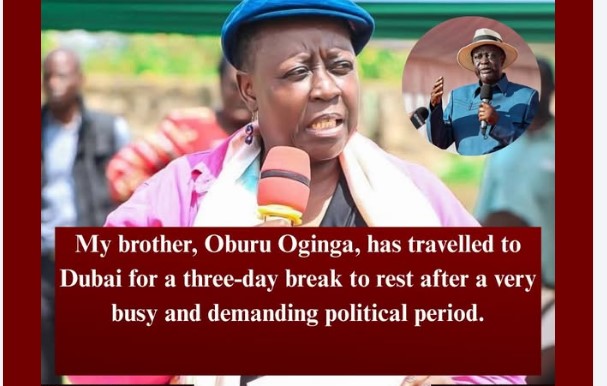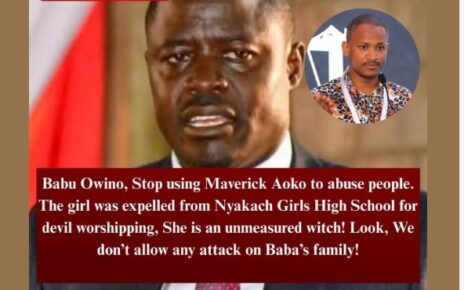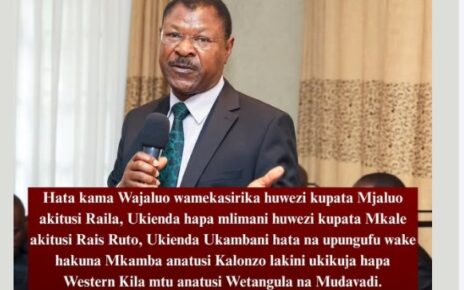Ruth Odinga has offered a rare personal glimpse into the life of veteran politician Dr. Oburu Oginga, revealing that he has travelled to Dubai for a three-day break to rest after what she describes as a “very busy and demanding political period.” Her statement, though simple, carries layers of meaning about the toll of politics, the weight of expectations on senior leaders, and the humanity often overlooked behind public service.
For decades, Oburu Oginga has been a towering figure in Luo Nyanza’s political landscape—an elder statesman, strategist, advisor, and influential backbone in the region’s political structure. His involvement in national and regional affairs has been continuous, intense, and deeply consuming. Ruth’s acknowledgment that he needed time away underscores the immense pressure that comes with such responsibility.
Politics, especially at the level Oburu plays, is not just about rallies and public speeches. It involves negotiation, conflict resolution, long nights of planning, and navigating emotionally charged environments. The recent political cycle has been particularly grueling, marked by endless meetings, shifting alliances, public expectations, and the complex task of guiding the community through Kenya’s volatile political landscape.
By publicly sharing that Oburu has taken time to rest, Ruth Odinga humanizes a leader many often see only through the lens of politics. It is a reminder that even the most experienced political players require pause—moments to breathe, reflect, and regain strength. Leaders are not machines; they too feel exhaustion, mental fatigue, and the need to step back from the noise.
The choice of Dubai as a destination reflects a broader trend among Kenyan leaders who seek short, quiet breaks in cities offering privacy, comfort, and distance from domestic political turbulence. For someone of Oburu’s stature, even a brief retreat can be revitalizing, offering renewal before diving back into the demanding rhythms of national politics.
Ruth’s statement also subtly speaks to unity within the Odinga family—a family that has played a central role in Kenya’s political history for generations. It shows care, concern, and acknowledgment of Oburu’s years of sacrifice. It serves as a reminder that behind powerful political legacies are individuals with families who worry about their well-being.
Ultimately, Ruth Odinga’s message is a gentle reflection on leadership, aging, and rest. It highlights the unseen emotional and physical cost of political service and the importance of stepping back when needed. As Oburu Oginga rests in Dubai, her words resonate beyond the personal—they echo the reality that leadership, at its core, requires balance between duty and personal well-being.



